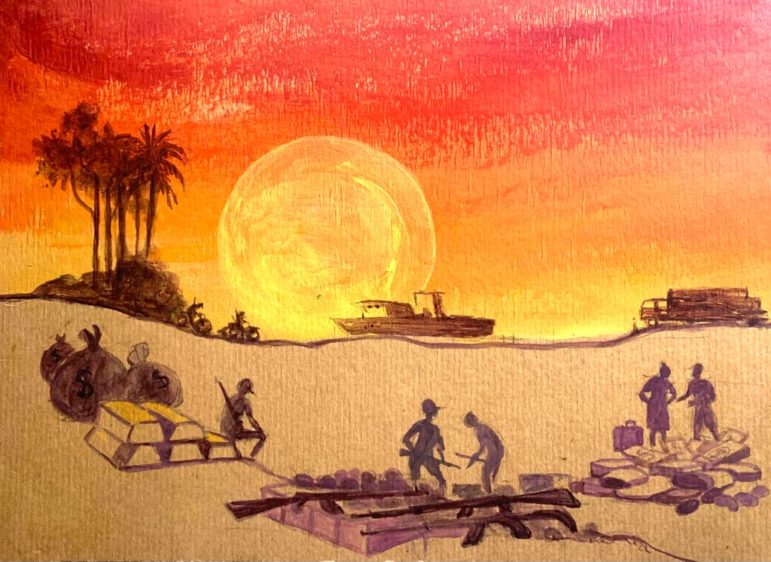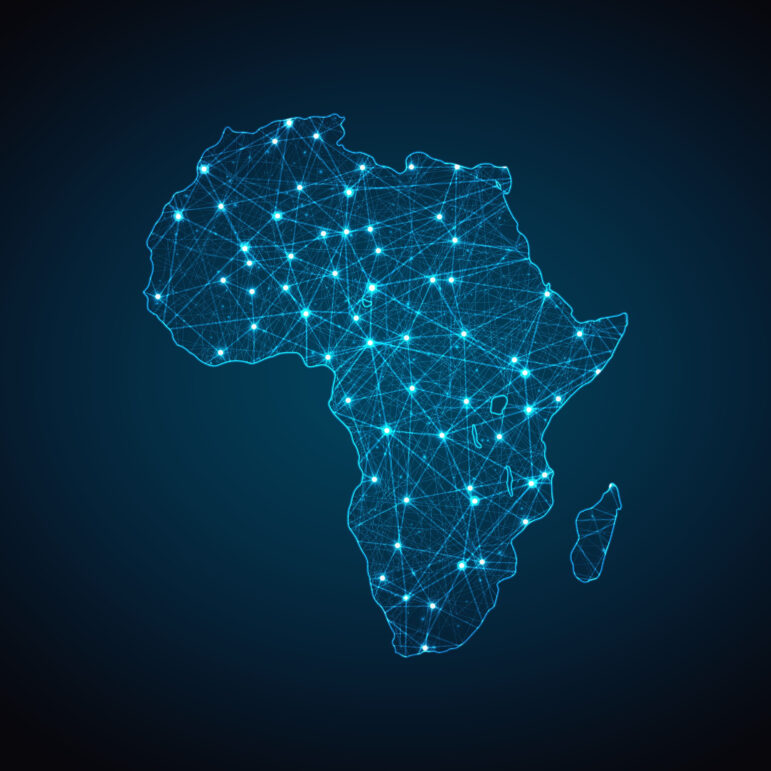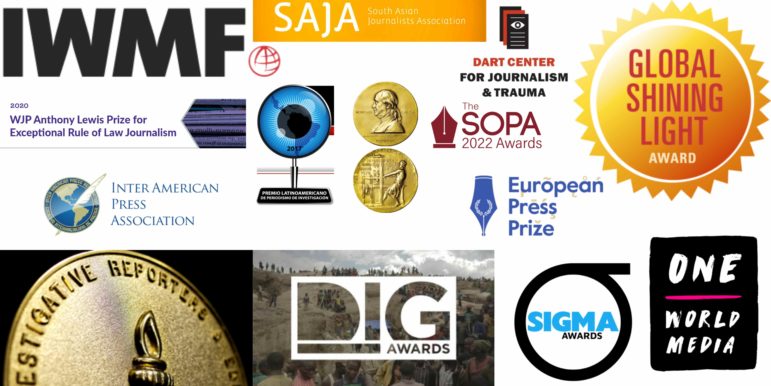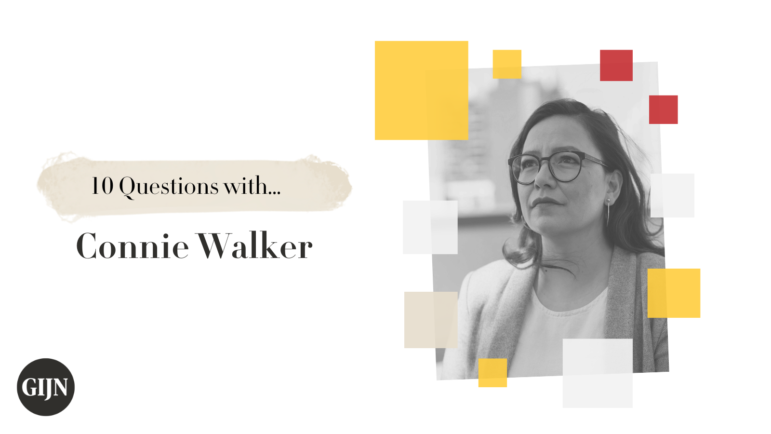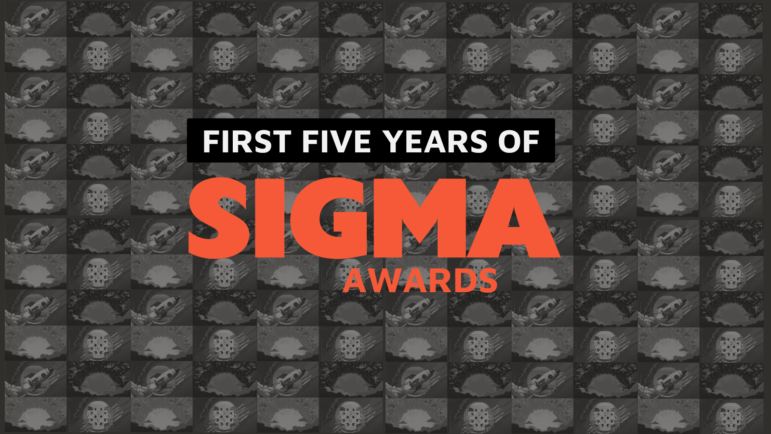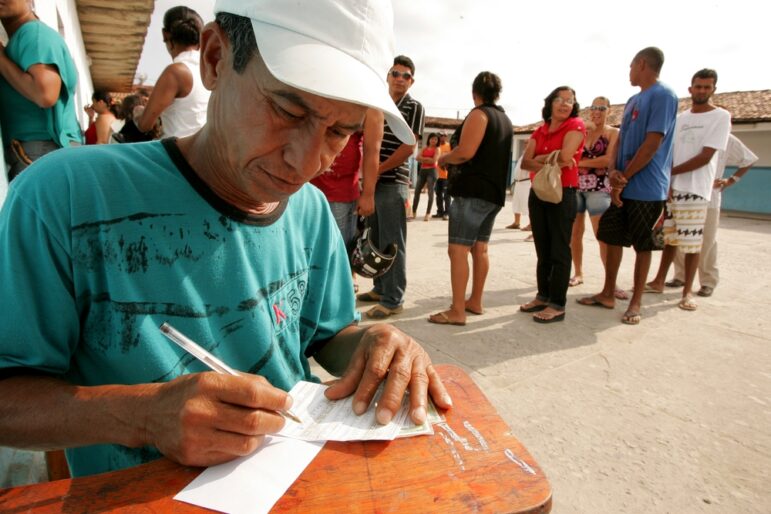Seven Journalists Sentenced to Prison in Azerbaijan
Source: Abzas Media
Seven journalists from Abzas Media and Radio Free Europe/Radio Liberty (RFE/RL) were sentenced to lengthy prison terms in a court in Baku, Azerbaijan. The group, which included Abzas Media's director, Ulvi Hasanli, and editor-in-chief, Sevinc Vagifgizi, were accused of numerous crimes and operating as an "organize group" in retaliation for their reporting. The charges included smuggling, illegal entrepreneurship, money laundering, tax evasion, forgery, and use of false documents. Vagifgizi said that the corruption investigations Abzas Media published involving top officials and members of the Azerbaijan president’s family were the real reason behind the criminal charges. Hasanli added: “We have lost our freedom for the sake of free speech and independent media."
2026 Bertha Challenge for Investigative Journalists
Source: The Bertha Foundation
The Bertha Foundation, which supports activists, lawyers, and storytellers around the world with funding opportunities for those fighting injustice, is accepting candidates for the Bertha Challenge, a fellowship program that enables in-depth investigations into one pressing social issue. For the 2026 challenge, investigative journalists and activists will spend one year focusing on protecting democratic accountability. The fellowship comes with a stipend of up to US$64,900, project funding of up to US$10,000, and a “connect fund” of up to US$5,000 to encourage collaboration, training, mentorship, and networking. The deadline is July 28, 2025.
Early Bird Tickets Available for the 2025 African Investigative Journalism Conference
Source: AIJC
Early bird tickets are now on sale for the 2025 African Investigative Journalism Conference (#AIJC25), organized by the Wits Centre for Journalism and taking place at Wits University in Johannesburg, South Africa, from November 5-7, 2025. The conference, now in its 21st year, is the largest gathering of investigative journalists on the continent. #AIJC2025 will also host the third annual African Investigative Journalist of the Year Award ceremony on the second day of the conference. The early bird tickets are available via the Quicket platform until August 10 — bulk discounts are available for 5 to 9, and 10+ ticket purchases.
IWMF Grants for Narrative Journalism
Source: Nieman Foundation
The International Women’s Media Foundation (IWMF), along with family and friends of former Reuters, LA Times, and Nieman Storyboard editor Kari Howard, offer the Kari Howard Fund for Narrative Journalism. Women and non-binary journalists with at least three years’ experience can apply for grants of up to US$5,000; applicants can be freelance, and apply individually or as part of a team. Projects reported and published in English anywere in the world are eligible, and reporting must be completed within six months. The application deadline is July 13, 2025. Howard died of cancer in 2022.
Two Sentenced to Life Imprisonment for Charges Related to Daphne Caruana Galizia Assassination
Source: The Daphne Caruana Galizia Foundation
In Malta, Robert Agius and Jamie Vella received life sentences on charges related to the assassination of journalist Daphne Caruana Galizia, who was killed by a car bomb outside her home in October 2017. The jury delivered an 8-1 verdict convicting Agius and Vella of supplying the bomb used to kill Caruana Galizia. The alleged mastermind of the plot, Yorgen Fenech, is currently awaiting trial after being released on bail in February 2025. The middleman in the plan for Caruana Galizia’s murder, Melvyn Theuma, received a presidential pardon in 2019 and is now a state witness.
IRE Investigative Reporting Fellowship for Journalists of Color
Source: IRE
Journalists of color based in the United States can apply for the Investigative Reporters and Editors (IRE)’s Chauncey Bailey Journalist of Color Investigative Reporting Fellowship. The year-long program aims to prepare and support a journalist of color for a career in investigative reporting, and provides training and mentorship, as well as support to attend IRE trainings, Data Journalism Bootcamps, a NICAR conference, the IRE annual conference, and other benefits. Fellows receive a one-year IRE membership or renewal, conference registrations, travel stipends, and more. The deadline to apply is September 1, 2025.
CPJ, Media Leaders Call for Journalists’ Unrestricted Access to Gaza
Source: CPJ
In a letter coordinated by the Committee to Protect Journalists (CPJ) and Reporters without Borders (RSF), more than 130 global leaders of news and press freedom organizations called on world leaders, governments, and international institutions to ensure journalists from outside Gaza are given immediate access to the territory. The letter also demands the protection of Palestinian journalists currently reporting under siege in the territory. For almost 20 months, Israeli authorities have prevented international media from entering Gaza, except for brief excursions. “Access must be restored, and the rights of journalists must be respected,” said CPJ CEO Jodie Ginsberg.
Submit Work For the 2025 Daphne Caruana Galicia Prize for Journalism
Source: Daphne Caruaza Galicia Prize for Journalism
The fifth edition of the Daphne Caruana Galizia Prize for Journalism is now open for submissions. Professional journalists, individually or working in teams, may submit their work for consideration by July 31, 2025. The Prize honors outstanding journalism that defends core values of the European Union, such as human dignity, freedom, democracy, the rule of law, and human rights. The winning submission will be selected by an independent jury, and the €20,000 annual prize will be awarded in October 2025 at the European Parliament in Strasbourg, as a symbolic reminder of the date of Caruana Galizia’s assassination.
Kyrgyzstan Detains Journalists in Independent Media Crackdown
Source: Amnesty International
Security forces of the Kyrgyz government have arrested, detained, and relocated for interrogation numerous journalists from GIJN member Kloop media in the past two days. Authorities conducted coordinated raids targeting at least eight individuals, including current and former Kloop editorial staff. These journalists were also denied access to legal representation for hours and some were accused of "inciting mass unrest," though no formal charges have been filed as of now. “The detention of Kloop journalists is yet another stark example of how Kyrgyzstan’s security apparatus is being used to crush dissent and dismantle independent journalism. These actions are clearly intended to intimidate critical voices," said Marie Struthers, Amnesty International’s Director for Eastern Europe and Central Asia.
US Press Freedom Groups Launch Journalist Assistance Network
Source: CPJ
Five US-based press freedom organizations — the Committee to Protect Journalists, Freedom of the Press Foundation, International Women’s Media Foundation, PEN America, and the Reporters Committee for Freedom of the Press — announced the launch of a network to provide legal, safety, and training resources to journalists and newsrooms in the United States. They noted that requests for assistance from journalists and newsrooms have increased significantly. “Journalists and newsrooms from across the country are increasingly concerned about a raft of measures and actions that threaten press freedom in the United States,” said CPJ CEO Jodie Ginsberg.


















